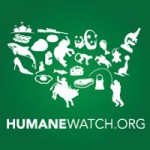HumaneWatch fries HSUS and PETA Maternity Pen Myths
Our HumaneWatch project is releasing a new video in its campaign to curb misinformation about individual maternity pens used in pork — yes, that means bacon — production that have come under attack by the Humane Society of the United States. While HSUS would have you think that maternity pens are “inhumane, the reality is that pens actually protect animals from bullying, malnutrition, disease, and death while allowing them individual care and attention. Don’t just take our word for it–200 large-animal veterinarians agree with us. MaternityPens.com serves as a resource for consumers about the true nature of maternity pens through facts and informative videos such as interviews with actual veterinarians and a guide to maternity pens.
Seventy-six percent of the public finds farmers and veterinarians more credible than animal rights activists on animal welfare. (No small wonder, given the wacky résumés of folks at HSUS and PETA.) The public does not agree with PETA’s and HSUS’s agenda to “liberate” farm animals and make everybody a strict vegetarian. PETA — a hypocritical killer of adoptable pets, mind you — and HSUS treat pigs as if they are pets with little regard for the often hostile nature of open animal pens. In group housing, smaller pigs can be bullied and attacked by larger pigs. With maternity pens, all pigs get the individual medical care, nutrition, and attention necessary to be healthy.
What’s the real goal here? Forcing farmers into costly infrastructure changes drives up the cost of production and reduces demand. After Britain banned maternity pens in the 90s, the only visible difference in the industry was the increase in pork production costs by 12 percent and a 40 percent drop in supply. (That means less bacon that’s more expensive.) This is exactly what the animal rights activists want – less meat to eat.
Think twice about the agenda of the animal rights groupies before you listen to their propaganda. Do they actually care about the quality of farm life, or are they really concerned with creating a future where “a rat is a pig is a dog is a boy?”




